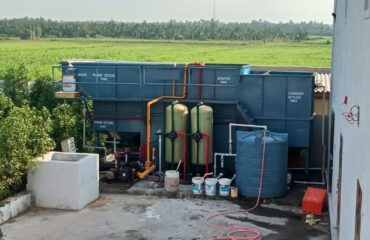Effluent Treatment Plants (ETPs) have become indispensable in cities like Kolkata, where urbanization and environmental preservation are equally vital. This article explores the significance of Effluent Treatment Plants in Kolkata, their role in curbing pollution, and their contribution to a sustainable future.
ETPs: Guardians of Environmental Health
Kolkata, a historic city on the banks of the Ganges River, has witnessed rapid urban growth and industrial development. However, this progress has led to the generation of substantial industrial wastewater. ETPs in Kolkata play a crucial role in treating and purifying this wastewater, ensuring that pollutants are removed before it is released back into the environment.
Operational Mechanisms
Effluent Treatment Plants employ a combination of physical, chemical, and biological processes to effectively purify wastewater. The primary treatment phase involves the removal of larger solids, followed by secondary treatment that relies on microorganisms to degrade organic matter. Tertiary treatment further enhances water quality, making it suitable for safe discharge or potential reuse.
Overcoming Challenges
ETPs in Kolkata face challenges such as varying pollutant levels and the need for consistent operational efficiency. To address these challenges, ETPs are incorporating innovative solutions like advanced filtration systems and real-time monitoring, ensuring efficient and effective wastewater treatment.
Government Collaboration and Regulations
The Kolkata administration recognizes the vital role of ETPs in maintaining a healthy environment. Stringent regulations guide industries to comply with wastewater treatment standards. This collaborative effort between industries and regulatory bodies highlights the city’s commitment to responsible growth.
Benefits of ETPs
Effluent Treatment Plants offer a multitude of benefits to Kolkata’s ecosystem. By preventing water pollution, they protect aquatic life and the overall health of water bodies. Moreover, some ETPs enable resource recovery, reducing the demand for raw materials and promoting sustainability.
Shaping a Greener Future
The future of Effluent Treatment Plants in Kolkata is promising. Technological advancements will lead to higher automation and efficiency. The integration of artificial intelligence and data analytics will optimize treatment processes, ensuring even higher compliance with environmental norms.
Conclusion
Effluent Treatment Plants in Kolkata are not merely facilities; they are custodians of the city’s environmental well-being. By treating industrial wastewater effectively, these plants play a significant role in Kolkata’s journey towards sustainable development. The delicate equilibrium between urbanization and environmental protection is achieved through the concerted efforts of Effluent Treatment Plants.





